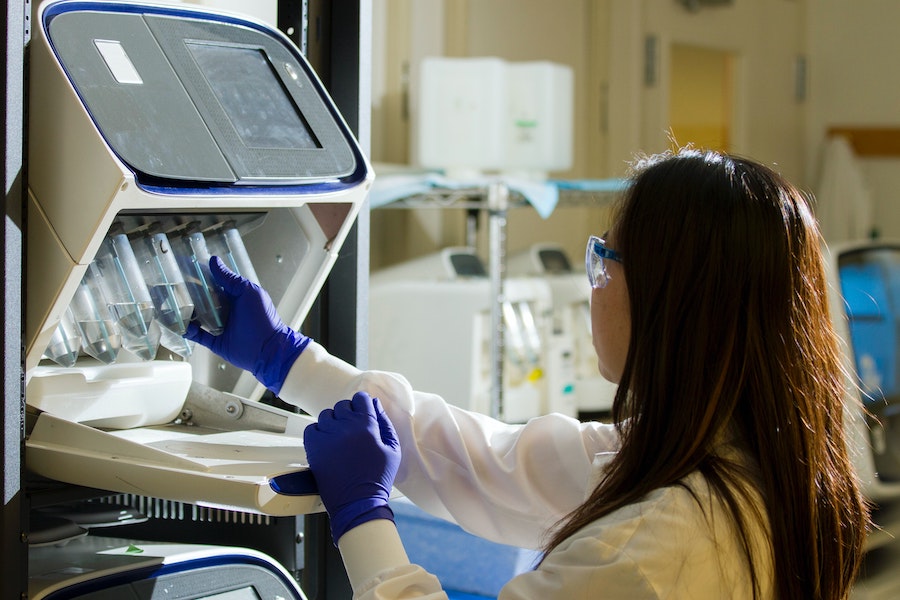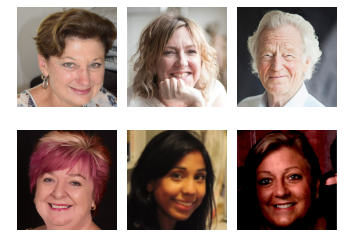Future Health 2050: A new three-part webinar series on health and life sciences, organised in collaboration with Lexica
Watch Webinar 1: Emerging therapies: how digital transformation is accelerating innovation
Watch Webinar 2: Bench to bedside: rethinking investment across digital and physical infrastructure
Driven by a combination of rapid scientific and technological advances, and a new global culture of collaboration, the health and life sciences sectors are poised for a new ‘golden age’ that will transform the way we diagnose, treat and cure a wider range of diseases at the same time as shifting focus towards prevention, earlier detection, and promotion of wellbeing that improves population and planetary health. 
The economic prize offered by the health and life sciences sector for greater growth, combined with a social and moral imperative to address the ever-widening health inequalities between low- and high-income communities in both rich and poorer parts of the world, is providing a powerful incentive to grasp the opportunities presented by the successful response of the sector to the Covid-19 pandemic.
The lessons learnt from the development of vaccines, diagnostics and therapies during the pandemic are now helping to accelerate the search for life-changing breakthroughs against other diseases, from cancer, cardiovascular and respiratory disease to obesity, dementia, mental health and ageing, with the potential to save and transform people’s lives and health outcomes.
The UK is well positioned to take advantage as a global leader, leveraging its world-class science and research capabilities, including its leadership in genomics, with the huge potential of the NHS as a large centralised resource of data, while other countries can demonstrate greater capacity in physical infrastructure, growth capital, and the speed of adoption of new technologies.
Many factors will influence success, from digital transformation across the life sciences value chain, the development of a robust data infrastructure, workforce capacity and wellbeing, and the creation of connected physical infrastructure that supports translational medicine at the interface of research and practice, to a flexible and longer-term culture of capital investment. 
Collaboration, however, will be front and centre of the health and life sciences sector’s ability to grasp the opportunity. The impact on health outcomes, morbidity and mortality of innovations in predictive and monitoring technologies, genomics, and data to prevent, detect, diagnose and treat disease early, will depend on the speed to market, and the ability to create incentives for a seamless collaboration between different actors in a global ecosystem – including governments, health systems, academia, capital markets, medical research charities and industry – to maximise resources and optimise the speed at which innovation moves from bench to bedside.
The most important actors though will be patients and the public. Innovation was catalysed and mobilised during the pandemic in the interest of patients, enabling the development of vaccines, diagnostics and therapies, as more than 90 million people worldwide engaged in clinical trials. As patients take even greater control of their own health, collaborating with patients in the development of new interventions will become even more central to successful innovations.
At the same time, driven by new global standards, enhanced disclosures and environmental and social governance (ESG), the health and life sciences sector, under scrutiny from watchdogs, investors and customers, must respond on key issues such as environmental sustainability, drug pricing, workforce and leadership diversity, and health and racial equity, including access to medicines.
In this new three-part webinar series, supported and co-designed with Lexica, we will hear from three panels of leading interdisciplinary experts debating issues that will shape the future impact of innovation in health and life sciences on population and planetary health.
Watch Webinar 1: Emerging therapies: how digital transformation is accelerating innovation
Digital transformation and new technologies in health and life sciences are ushering in a new era of life-changing diagnostics and therapeutics for previously terminal or incurable diseases, from cancer, cardiovascular and respiratory disease, to obesity, dementia, mental health and ageing.
Digital transformation is accelerating every part of the life sciences value chain. In this webinar, our expert panel considered the opportunities and barriers to innovation in the development of new therapies that are more personalised, accessible and sustainable, addressing core questions such as: 
- Will rapid digitisation create a panacea of interoperability, data exchange, faster analysis, and synthesis of data to inform the creation of new therapies?
- Is the future of new therapies less about lab work and more about mass data mining and exchanges across global platforms?
- What are the workforce implications for those who access and analyse this data – and those who are needed to build it?
- How can research data be accessed safely and securely across borders?
- What roles do patients, health systems, governments, new start-ups, established pharma and academic research have to play?
- How can collaboration be incentivised for the greater benefit of society?
- What are the barriers and challenges that can block innovation?
- How do we integrate physical and digital infrastructure with workforce needs?
Chair: Liz Paslawsky, Executive chair, SALUS
Panel: Sarah Kerruish, Chief strategy officer, Kheiron Medical
Sir Muir Gray, Director, Oxford Centre for Triple Value Healthcare; Former chief knowledge officer, NHS England
Joanna Smith, Digital advisory lead, Lexica
Tamara Rajah, Chief business and science officer, Holland & Barrett
Phillipa Winter, Industry account chief technologist for central government, health and social care within OCTO, Softcat
Watch Webinar 2: Bench to bedside: rethinking investment across digital and physical infrastructure
Where healthcare, academia and the private sector are co-located, the bench-to-bedside translation of research into clinical practice can often be energised and accelerated. In the UK, investment has been focused on how to better connect the Golden Triangle of the knowledge economies of London, Oxford and Cambridge, where the UK’s leading research institutions at Imperial College London, University College London, King’s College, University of Oxford and Cambridge University are based.
In this webinar, our expert panel considered the challenges and opportunities around the world in creating a more effective collaboration that leverages all of the resources offered by the sector partners, from data to capital to talent. Fundamental questions will be asked, such as: 
- What are the barriers and constraints on capital investment in digital and physical infrastructure, including lab space, housing and community infrastructure?
- Is investment in physical and digital infrastructure being integrated with workforce planning needs and expectations to attract the right talent?
- Are publicly funded healthcare systems like the NHS able to move with the same pace and agility as their academic and commercial partners, or do they face greater constraints on investment
- Is physical co-location as critical now, given the success of global research collaborations that are driving innovation, from the sequencing of the human genome to the global response for the development of diagnostics, vaccines and therapeutics for Covid-19?
- What lessons can be learnt internationally from other countries with successful life sciences industries?
Chair: John Kelly, Director, Lexica
Panel: Peter Ward, Director of real estate development, Guy’s and St Thomas’ NHS FT and King’s College
Ellie Richardson, Senior healthcare planner, Guy’s and St Thomas’ Foundation Trust
Sven Bunn, Life sciences programme director, Barts Health NHS Trust and Queen Mary University of London
Bob Klaber, Consultant general paediatrician, and director of strategy, research and innovation, Imperial College Healthcare NHS Trust
Melissa Morris, CEO and founder, Lantum
Human and animal health are inextricably linked to the health of the planet. Changes to the climate and environmental degradation are leading to more extreme weather events, such as wildfires, floods, heatwaves and mass population migrations, which in combination with the greater encroachment of human settlements into the habitats of wildlife, are increasing the potential for the spread of new and emerging zoonotic diseases, such as Covid-19.
In this webinar, our expert panel explored the role of the health and life sciences sector in mitigating and responding to this existential threat to human health, addressing key questions such as: 
- How should animal and human science research be better integrated to understand the threat of novel zoonotic and infectious diseases?
- How can we improve disease surveillance, preparedness, resilience and response?
- Should health and life sciences organisations work more closely together? Does physical proximity matter?
- How does the sector better support the capture of the co-benefits between sustainable development and human health?
- Is the health and life sciences sector demonstrating enough leadership in reducing its own carbon footprint?
Chair: John Cooper, Director, John Cooper Architecture; Advisor, SALUS
Panel: Adam Trigg, Director, client relations programme, Lexica
Jenny Stewart, Director of science and transformation, Animal and Plant Health Agency
Kris Murray, Assoc. professor of environment and health, Planetary Health MRC Unit, The Gambia, LSHTM; MRC Centre for Global Infectious Disease Analysis, School of Public Health, Imperial College London
Dominic Kniveton, Professor of climate change and society, University of Sussex (not pictured)

